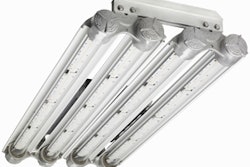By LINDSEY JAHN, Associate Editor, Food Manufacturing
New York City’s Board of Health in September passed regulation capping non-diet sodas and other calorie-laden beverages at 16 ounces in many of the city’s locations, the culmination of a months-long battle between health advocates and the beverage industry.
While the ban only affects drinks sold at sites inspected by the city’s health department — including movie theaters, restaurants and concession stands — the measure has shaken up an industry already rattled by a growing consumer emphasis on healthier drink options.
At the heart of the ban is the battle between consumer rights and public health advocates. Nearly 450,000 New Yorkers have signed a petition opposing the ban drawn up by New Yorkers for Beverage Choices, a group formed after Mayor Michael Bloomberg’s proposed restrictions were announced. The organization gained momentum quickly during the debate over the initiative and has continued to garner support despite the ban’s passage.
“These numbers [of our group’s supporters] are a testament to the fact that New Yorkers feel this proposal is arbitrary, ineffective and overzealous,” said Eliot Hoff, spokesperson for New Yorkers for Beverage Choices. “New Yorkers just aren’t going to accept government dictating what they are allowed to drink, and in what quantities. It’s not what New Yorkers want or need. And you have to wonder what’s next — popcorn? Pizza?”
New Yorkers for Beverage Choices argues that the ban on large sugary drinks unfairly targets small business owners, who they say will suffer from a ban that will not have the intended effects on public health.
“We all want a healthier New York, but this just isn’t the way to go about it,” said Councilwoman Letitia James, a supporter of the group. “My constituents and people across this city understand the need for real solutions that take into account the socio-economic landscape of this city and the complexities of people’s food choices. We need better education and funding for health programs, not gimmicks.”
Nutrition advocates argue that sugary soda bans like the one in New York can have a positive effect on public health, especially when it comes to obesity. A recently released study which followed more than 33,000 Americans over decades provides results that some scientists say is clear proof that non-diet soda and other sugary beverages interact with genes that affect weight, increasing an individual’s risk of obesity, even when other genetic factors are taken into account.
The American Beverage Association (ABA) disputes the study’s findings, stating, “Obesity is a serious and complex public health issue… We know, and science supports, that obesity is not uniquely caused by any single food or beverage.”
The ABA also points out that the beverage industry is taking steps to help consumers make informed nutritional choices, including reducing the average number of calories per drink serving and removing full-calorie sodas from all K-12 schools. The industry is also working with First Lady Michelle Obama’s “Let’s Move!” campaign with a Clear on Calories initiative that displays calorie information on the front of every beverage container.
The industry’s latest action regarding calorie disclosure is the ABA’s Calories Count Vending Program, which provides calorie information on vending machines, designed to encourage lower-calorie choices. The program will be launched in Chicago and San Antonio in 2013 before being made available nationwide.
“Working with key stakeholders is an important part of addressing the public health challenge of obesity,” Susan K. Neely, president and CEO of the ABA, said. “With [the Calories Count Vending Program], everyone who works in or visits a municipal building in Chicago and San Antonio will know exactly how many calories are in their favorite beverages before making a vending machine purchase — and they will be reminded that ‘calories count’ as part of achieving a balanced lifestyle.”
While cracking down on sugary beverages may not solve the nation’s obesity problem, it is clear that the beverage industry is willing to work with public health advocates to help consumers make healthier choices. And taking that initiative is a solid first step in improving consumer health and nutrition, as well as maintaining the continued growth of the beverage industry.
What’s your take? Please feel free to comment below or email [email protected]!






















